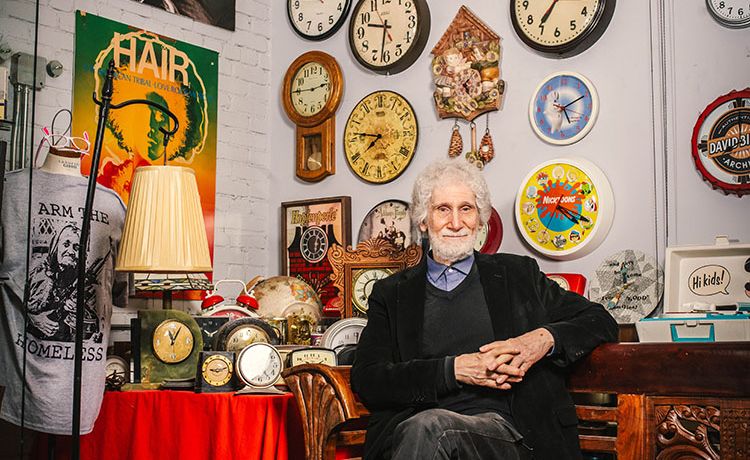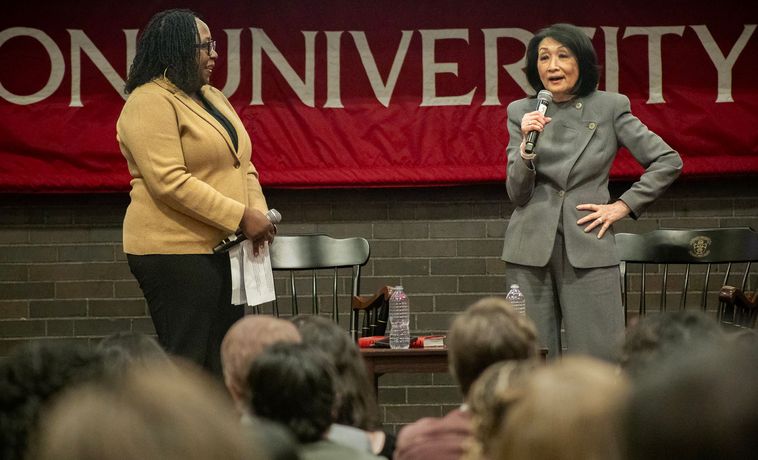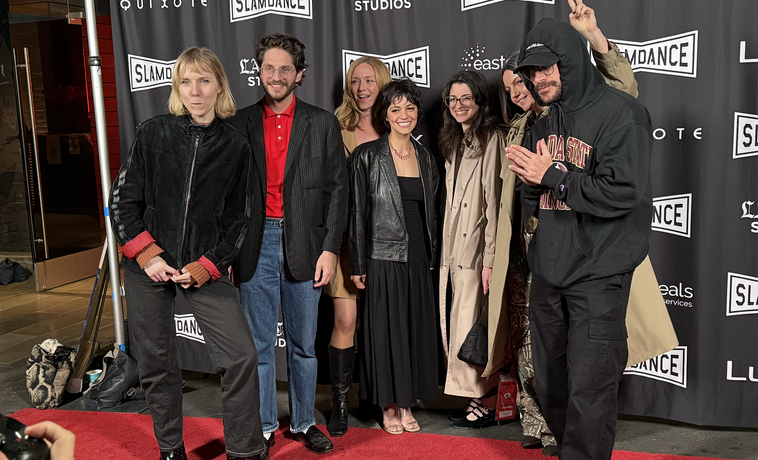Alum Kevin Merida is reinventing the Los Angeles Times
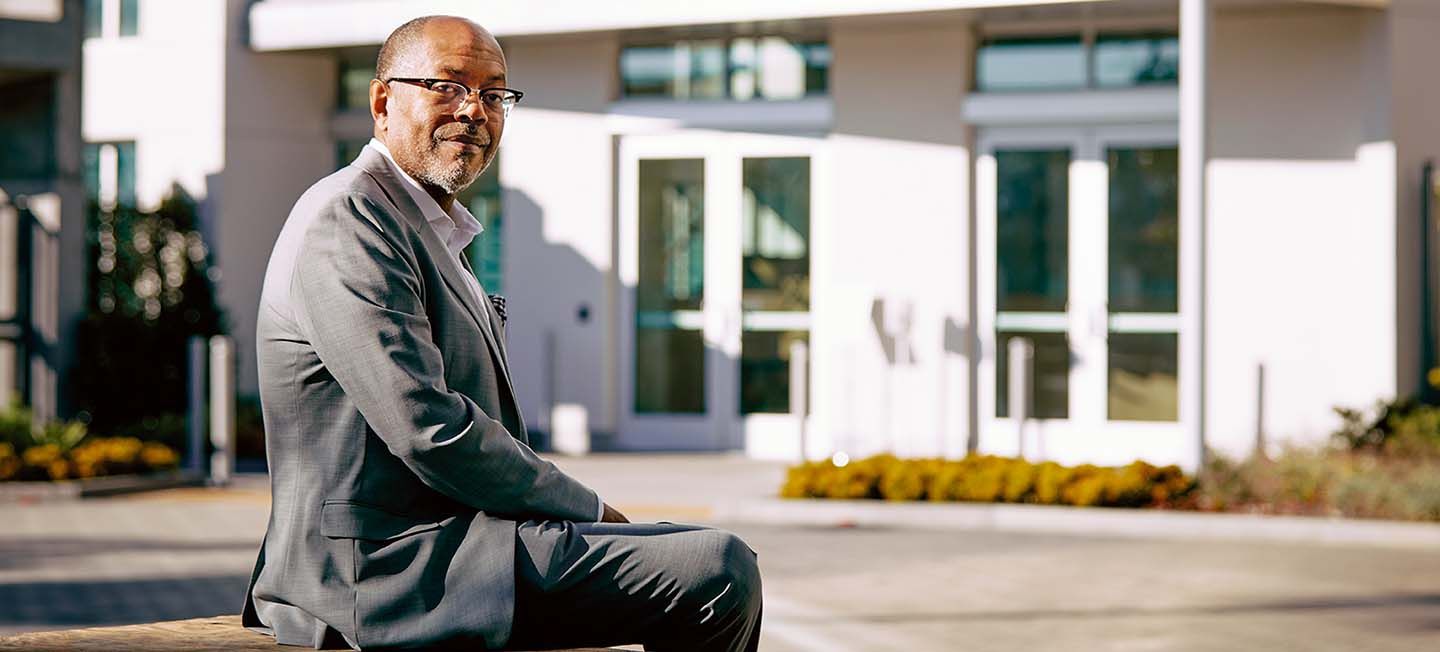
College of Communication alum and Executive Editor of the Los Angeles Times, Kevin Merida (COM’79) at the LA Times offices on December 21, 2022. Photo by Patrick Strattner for Boston University Photography
上世纪70年代,凯文·梅里达(Kevin Merida)在COM学习新闻学时,空气中弥漫着变化。 Woodward and Bernstein had broken open Watergate for the Washington Post. Boston journalists were covering the impact of the school busing crisis. And student activists were wrestling with issues like race on campus. Merida saw a lot of it firsthand as an intern at the Boston Globe and one of the leaders of a BU student paper called BLACKFOLK.
“It was an exciting time,” says Merida (’79). “You know what it’s like—when you’re young and you have all your dreams, but you don’t really know what you’re going to become.”
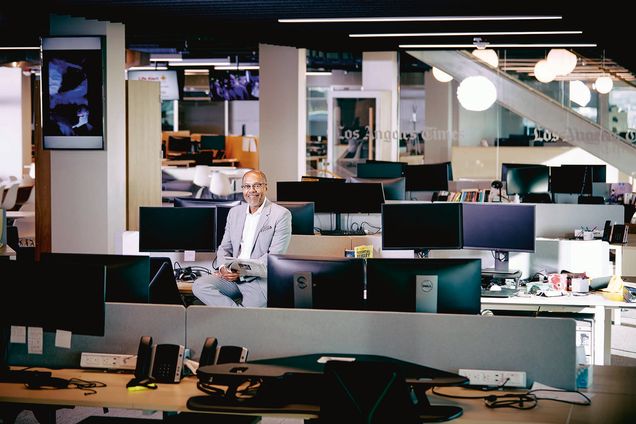
What Merida became is a journalism heavyweight, and in June 2021 was named executive editor of the Los Angeles Times. Before that, Merida spent several years as a senior vice president at ESPN, where he was editor-in-chief of The Undefeated, a cross-platform effort to look at the inter-section of sports, race and society. And before that he was at the Washington Post for 22 years, working as a reporter, columnist and managing editor. His résumé also includes stints as a reporter and an editor at the Dallas Morning News and as a reporter at the Milwaukee Journal.
Merida is a member of the Pulitzer Prize board and a BU trustee. He returned to campus in October 2022 to speak at the COM symposium, “Black Media: Reflecting on the Past and Reimagining the Future,” at the Howard Thurman Center for Common Ground. COM/365 spoke to him about journalism today, the role of race and representation, and the future of the industry.
Q&A
With Kevin Merida
COM 365: What is the state of the L.A. Times today, in terms of putting out a paper in these very challenging times for journalism?
Kevin Merida: We’re trying to reinvent what a newspaper is—get people to think about it differently. You and I came up in journalism at a certain time, when the newspaper was the primary vehicle. I’m sure it was in competition with Walter Cronkite and all of the anchors of network television, but it was the primary instrument for people to receive news and get what they needed to go about their lives, delivered to their doorstep. I delivered the newspaper as a kid—that’s how I came to journalism.
But obviously in the digital era that’s changed, and people are getting their information lots of different ways. And a news organization today has to do more things than a newspaper had to do. I still love the physical newspaper. It’s beautifully curated by human beings every day, and for those who still get it, it’s a wonderful product. But to reach the audiences that we need to reach today, and in the future, we have to be a broader, more robust thing.
COM 365: And what is that thing?
柯
COM 365: Tell us a bit about your roots in the business. What papers did you deliver when you were a kid? Were you one of those students whose interest in journalism was fueled by Watergate?
柯
COM 365: Diversity and representation are important everywhere, but maybe especially in journalism—and in your city. How is the Times doing on that front?
柯
COM 365: And that’s important to attracting new readers?
Kevin Merida: We have to be more aggressive about attracting audiences that may not have come to us, that historically may have had reasons to not trust us. We’ve been having a series of community meetings. How do we actively communicate with different groups of people of all demographics? And we let them kick our tires and look under our hood and say, “This is what we think of you,” but [we] also ask, “What should we be doing?”
I’ve just been reading a couple of books about L.A. history, and I think those folks probably had pretty good reason to have distrusted the L.A. Times for a long time. I think people want to see their authentic lives represented. Everybody does, right? And that’s always part of the challenge. I think newspapers historically have sometimes struggled with that. They’re a little too distant. Sometimes we’re accused of swooping in when it’s convenient and not really getting the nuances and the dynamics of communities. We have to work on that.
COM 365: Burnout among Black journalists was on the agenda at COM’s symposium, and given the nature of many of these stories over the last few years, starting with George Floyd, I’m wondering if you’ve seen that and if you’ve had to deal with it.
柯
